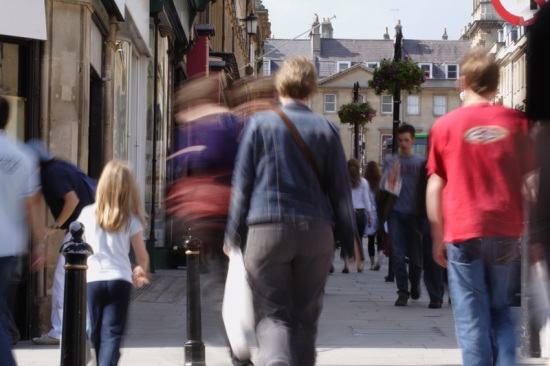July results from the retail sector proved incredibly disappointing; failing to live up to the pre-Olympic Games promise that the sporting event would boost the revenues of small to medium sized enterprises after several years of recession. Unfortunately, the trend continued on into August, with the British Retail Consortium (BRC) announcing that both the high street and internet shopping sites failed to meet targets in the past month.

The BRC claims that the net effects of the Olympics on retail commercial properties was minimal, meaning that the influx of visitors to the UK, and in particular London, did little to reverse the poor fortunes of British businesses. As a result, large store chains were forced to report the poorest sales growth of the year so far.
Stephen Robertson, director general of the British Retail Consortium, said; “It is clear people were absorbed by the magnificent Olympics and had little interest in shopping, especially for major items.
“Usually reliable online sales suffered, putting in the worst sales growth since we started the measure four years ago – some retailers told us online activity was particularly thin in the evenings.
“If people weren’t watching television they were more likely to be following the sport on their mobile devices and computers than shopping.”
Online shopping grew by only 4.8 per cent, which is the lowest growth since the start of the recession in October 2008. Meanwhile on the high street, sales were down by 0.4 per cent when compared to August 2011 – a big problem, considering that August 2011’s sales had dropped by 0.6 per cent from the previous year.
Fortunately, not all areas within the retail industry suffered at the hands of the Olympic Games, as it was shown that food and drink had their best four week period of the year so far in August. Party snacks including crisps and nuts sailed off the shelves as people settled onto the sofa for a night in front of the televised Games, while barbecue food got a look in as the weather improved in the middle of the month.
In fact, according to market research firm Nielsen, sales for the top UK supermarkets in the four weeks ending on August 18th had increased by 3.5 per cent when compared to the previous year. This made food and drink one of the best performing categories in retail for the entire month.
Head of retail at Nielsen, Mike Watkins, said; “Although promotional activity has remained unchanged, the continual use of money off vouchers and coupons has marked a differing approach by retailers this summer.
“This has helped to increase shopping basket spends and in return given shoppers further savings at the checkout.”
It appears, then, that the London Olympics were not quite the saviours of British commercial property businesses that they were billed to be in the run up to July. With the double dip recession still firmly in the forefront of everyone’s minds, and the urge to spend counterbalanced by the thought of saving for the future, the question is whether British businesses will be able to survive this latest blow to their performances.
Do you think the Olympic Games had a positive effect upon the UK, or should Britain have backed out of the bid as soon as it became clear that economic difficulties made it unwise to host such a costly event?
Previous Post
North South Divide for Vacant Commercial Properties